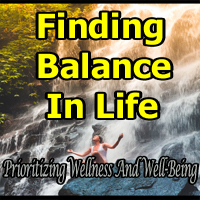


Breaking Free From The Chains Of Insecurity

Crippling self-doubt is a formidable adversary that can hinder personal growth, diminish self-worth, and paralyze individuals in their pursuit of success. It is a psychological challenge that affects people from all walks of life, undermining their confidence and often preventing them from realizing their full potential. In this article, we delve into the world of crippling self-doubt, exploring its causes, manifestations, and strategies to overcome it.
Understanding Crippling Self-Doubt
Crippling self-doubt goes beyond the occasional self-questioning or moments of uncertainty that most people experience. It is a persistent and pervasive sense of inadequacy that can lead to a fear of failure, constant anxiety, and a belief that one is inherently unworthy or incapable of success. Those afflicted with crippling self-doubt often struggle to internalize their accomplishments and talents, attributing their successes to external factors or mere luck.
Causes Of Crippling Self-Doubt
Crippling self-doubt can have various origins, and it may be triggered or exacerbated by a range of factors:
Past Experiences: Traumatic experiences or past failures can leave lasting scars and foster self-doubt.
Comparison: Constantly comparing oneself to others and feeling like you fall short can lead to crippling self-doubt.
Perfectionism: Striving for unattainable perfection and fearing any hint of imperfection can fuel self-doubt.
High Expectations: External pressure or high expectations from others can amplify self-doubt.
Impostor Syndrome: The feeling of being a fraud, despite success, can contribute to crippling self-doubt.
Manifestations Of Crippling Self-Doubt
Crippling self-doubt can manifest in various ways, including:
Procrastination: The fear of failure or inadequacy can lead to avoidance and procrastination.
Self-Criticism: Constant self-criticism and negative self-talk erode self-esteem.
Lack Of Confidence: Individuals with crippling self-doubt often lack self-confidence, making it difficult to take risks or seize opportunities.
Impaired Decision-Making: Second-guessing oneself can lead to difficulty in making choices.
Avoidance Of Challenges: A tendency to avoid challenging situations or new experiences.
Strategies To Overcome Crippling Self-Doubt
Overcoming crippling self-doubt is a journey that requires patience and self-compassion. Here are some strategies to help break free from its grip:
Self-Awareness: Recognize that you are experiencing self-doubt and understand its sources.
Challenge Negative Thoughts: Challenge self-critical thoughts by focusing on your achievements and capabilities.
Set Realistic Goals: Set achievable goals and acknowledge that setbacks are part of the learning process.
Seek Support: Share your feelings with trusted friends or seek professional help if needed.
Practice Self-Compassion: Treat yourself with kindness and remember that nobody is perfect.
Celebrate Small Wins: Acknowledge and celebrate your successes, no matter how small they may seem.
Crippling self-doubt is a formidable adversary that can hinder personal and professional growth. Recognizing its causes and manifestations is the first step towards breaking free from its grasp. With self-awareness, self-compassion, and a commitment to challenging negative thoughts, individuals can overcome the chains of insecurity and embrace their true potential. Remember that you are capable of achieving great things, and your self-doubt does not define your worth or potential.


The Art Of Juggling Career And Personal Life
 Reduced Stress: Maintaining a balance between work and personal life can alleviate stress and prevent burnout. It allows you to recharge and return to work with renewed energy.
Reduced Stress: Maintaining a balance between work and personal life can alleviate stress and prevent burnout. It allows you to recharge and return to work with renewed energy.
Improved Health: Work-life balance positively impacts physical and mental health. It can reduce the risk of health problems related to chronic stress and exhaustion.
Enhanced Productivity: Individuals who prioritize work-life balance are often more productive. They approach their work with focus and efficiency, knowing they have designated personal time.
Quality Relationships: Balancing work and personal life enables individuals to invest time in building and maintaining healthy relationships with family and friends.
Greater Fulfillment: Achieving a balance that allows for personal pursuits, hobbies, and leisure activities enhances overall life satisfaction and fulfillment.
Strategies For Achieving Work-Life Balance
Set Boundaries: Establish clear boundaries between work and personal life. Define specific working hours and disconnect from work-related communication outside those hours.
Prioritize And Delegate: Identify priorities in both your career and personal life. Delegate tasks when possible, and focus your time and energy on what truly matters.
Time Management: Implement effective time management techniques to make the most of your work hours. Use to-do lists, calendars, and productivity tools to stay organized.
Self-Care: Prioritize self-care, including exercise, relaxation, and quality sleep. Taking care of your physical and mental health is essential for work-life balance.
 Embracing Positivity: Cultivating a positive mindset starts with the embrace of positivity. Instead of dwelling on problems and obstacles, focus on solutions and opportunities. This shift in perspective leads to a more optimistic outlook on life.
Embracing Positivity: Cultivating a positive mindset starts with the embrace of positivity. Instead of dwelling on problems and obstacles, focus on solutions and opportunities. This shift in perspective leads to a more optimistic outlook on life.
Reducing Stress: A positive mindset is closely related to stress reduction. It helps you manage and cope with stress more effectively, preventing it from negatively impacting your well-being. A positive outlook encourages relaxation and fosters resilience.
Enhancing Resilience: Resilience is a vital component of well-being. It's the ability to bounce back from setbacks and adapt to change. A positive mindset equips you with the mental fortitude to navigate adversity with grace.
Fostering Healthy Relationships: Positivity often leads to more harmonious and supportive relationships. When you adopt a positive mindset, you are more likely to attract positive individuals into your life, leading to improved social and emotional well-being.
A Key To Success
 Self-confidence is not an innate trait; it can be nurtured and developed over time. It is a mindset that can be cultivated and strengthened through self-awareness, positive thinking, and self-empowerment.
Self-confidence is not an innate trait; it can be nurtured and developed over time. It is a mindset that can be cultivated and strengthened through self-awareness, positive thinking, and self-empowerment.
Here are a few key aspects that highlight the significance of belief in oneself:
Overcoming Obstacles: When individuals truly believe in themselves, they are more likely to view obstacles as temporary setbacks rather than insurmountable barriers. This perspective enables them to approach challenges with resilience and determination, as they trust in their ability to find solutions and keep moving forward.
Taking Initiative: Self-confidence gives individuals the courage to step out of their comfort zones and take risks. They are more willing to embrace new opportunities, set ambitious goals, and push the boundaries of their capabilities. Belief in oneself acts as a catalyst for personal and professional growth.
Positive Mindset: A strong sense of self-belief is closely intertwined with a positive mindset. Those who believe in themselves tend to focus on their strengths, accomplishments, and potential, rather than dwelling on their weaknesses or failures. This optimism not only boosts self-esteem but also attracts positivity and opportunities.
Resilience: Believing in oneself helps individuals bounce back from failures and setbacks. They understand that not every endeavor will result in success, but they maintain faith in their capacity to learn, adapt, and eventually achieve their goals. This resilience is a powerful asset in the face of life's inevitable challenges.






Overcoming The Self-Doubt
 The Paradox Of Success
The Paradox Of Success
One might assume that achieving success would be a potent antidote to impostor syndrome, but it often works in the opposite way. Success can, in fact, exacerbate impostor feelings. As individuals achieve more significant milestones and accumulate accolades, the pressure to maintain a certain level of performance intensifies. This heightened pressure becomes fertile ground for self-doubt, as success feels increasingly elusive, and the fear of being exposed as an impostor grows.
Self-Sabotage And Impostor Syndrome
Impostor syndrome can lead to self-sabotaging behaviors that hinder one's journey to success. When you believe you don't deserve your achievements, you might inadvertently undermine your own progress by turning down opportunities, not pursuing your goals, or procrastinating out of fear. This self-sabotage can become a self-fulfilling prophecy, making it more challenging to maintain and build upon your success.
Recognizing Impostor Syndrome
The first step towards overcoming impostor syndrome is recognizing it. Understand that the nagging self-doubt and fear of being exposed as a fraud are not unique to you but are, in fact, common in high-achievers.
A Remedy To This Fast-Paced World
 One of the primary benefits of solitude is its ability to slow down the frantic pace of modern life. In a world that values constant activity, solitude encourages us to pause, breathe, and appreciate the stillness. It allows us to detach from the pressures of work, social obligations, and technology, offering a precious break that is essential for emotional well-being.
One of the primary benefits of solitude is its ability to slow down the frantic pace of modern life. In a world that values constant activity, solitude encourages us to pause, breathe, and appreciate the stillness. It allows us to detach from the pressures of work, social obligations, and technology, offering a precious break that is essential for emotional well-being.
Solitude fosters introspection and self-awareness. When we disconnect from the noise and demands of the external world, we can turn our attention inwards. This self-reflection allows us to understand our thoughts, emotions, and desires on a deeper level. It's an opportunity to explore our values, question our goals, and find our innermost aspirations.
Moreover, solitude promotes mindfulness. It encourages us to be fully present in the moment, to savor the simple pleasures of life, and to relish the beauty of our surroundings. This practice of mindfulness is a powerful antidote to stress and anxiety, contributing significantly to our emotional well-being.
Solitude also offers a respite from the pressure to be constantly productive. It is a space where we can let go of the need to accomplish and simply exist. This release of the constant drive for productivity can be liberating, reducing the stress and mental fatigue that often accompany our busy lives.